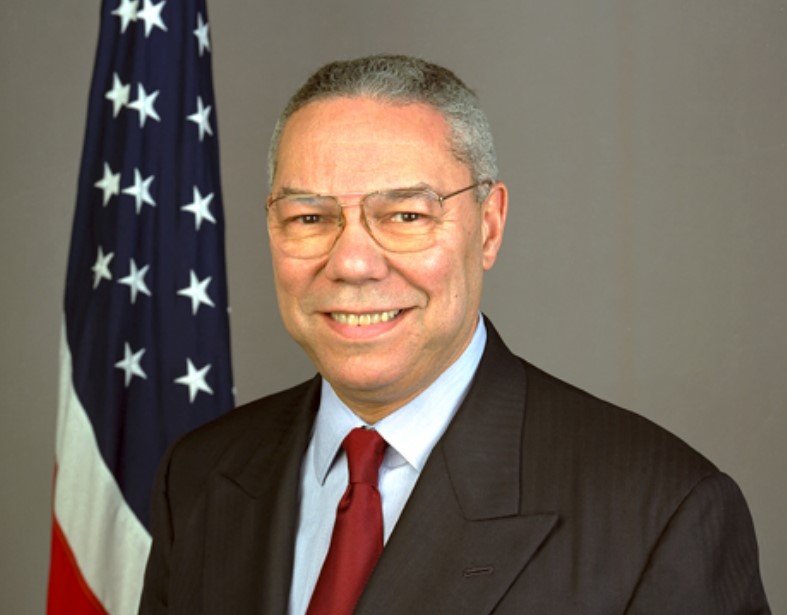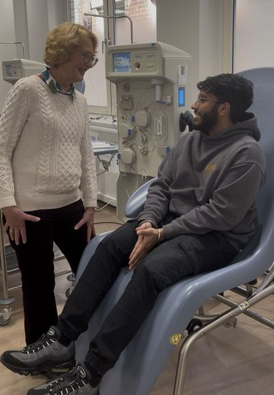Tributes were being paid to former US Secretary of State Colin Powell, who died of Covid-19 complications. A highly decorated army officer who saw service in Vietnam, he became a trusted military adviser to a number of leading US politicians.
During his tour was injured by stepping on a punji stick, a sharpened wooden stake hidden in the ground and used as a booby trap.
After leaving the army he was touted as a vice-presidential nominee for both Democrats and Republicans before declaring himself a Republican in 1995.
The son of Jamaican immigrants, he was born in Harlem, New York City, after a spell at an army college, he was promoted to brigadier-general and commanded the 101st Airborne Division before taking up an advisory role in government. He worked for a time in the Carter administration and then became senior military aide to Caspar Weinberger, the Secretary of State for Defence appointed by the incoming president, Ronald Reagan.
In 1987, he became national security adviser. When George HW Bush entered office in 1989, he was appointed Chairman of the Joint Chiefs of Staff, the highest military position in the US Department of Defence - the youngest officer ever, at 52 - to hold the post and the first from an African-American background.
In another “first”, in 2000, he was appointed as Secretary of State by George W Bush - the first African-American in that position and helped swing international opinion behind the 2003 invasion of Iraq - despite his own misgivings. Initially opposed the use of force, the 1990 Gulf War saw the implementation of a strategy which was dubbed ‘The Powell Doctrine’ – where he believed that it wasn't until all diplomatic, political or economic means had failed that the US should resort to military force.
Powell left the army in 1993 and devoted time to writing his autobiography - which topped the New York Times best-seller list - and engaging in charity work. Freed from his obligations as a serving officer, he began to involve himself in politics.
There was talk of him standing against Bill Clinton in the 1996 presidential election, but Powell decided he lacked the passion for a political career. Sticking to his own doctrine, opposed US involvement in Iraq, saying: "War should be the politics of last resort. And, when we go to war, we should have a purpose that our people understand and support."
But, in an about-face, he agreed to support George W Bush. However, he remained outspoken on political issues, criticising the Bush administration on many fronts, including the treatment of detainees at Guantanamo Bay.
His reputation as a man of integrity certainly helped persuade the United Nations of the case for war when he appeared before the Security Council in 2003. In 2008 Powell endorsed Barack Obama for the US presidency.
The former top military officer died, age 84.











